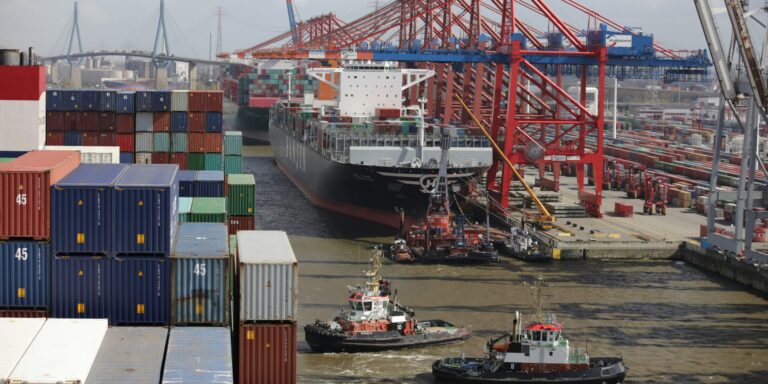Bank of England Governor Andrew Bailey has strongly condemned the unilateral tariff policies implemented by former U.S. President Donald Trump, arguing that they have severely disrupted the global trade system that has been in place since the end of World War II. In his remarks, Bailey described the impact of Trump’s tariffs as having “blown up” the carefully constructed international trading order, contributing to significant fragmentation in global commerce. This shift, he suggested, has had far-reaching consequences for economic stability and growth worldwide.
Bailey’s criticism comes amid a broader reassessment of the effects of protectionist trade policies, which have been a hallmark of Trump’s economic strategy. His administration’s imposition of tariffs, particularly on Chinese goods, was intended to address what Trump perceived as unfair trade practices and to bring manufacturing jobs back to the U.S. However, these tariffs, while aimed at bolstering domestic industries, have also had unintended negative consequences, not only for global trade but for the U.S. economy itself.
Bailey emphasized that the fragmentation of the global trade system, which has long been characterized by open markets and cooperative agreements, has hindered growth prospects and increased uncertainty for businesses and investors alike. “The structure that we had after the Second World War, which was based on open trade and multilateral cooperation, has been disrupted,” Bailey explained. “The consequences of that disruption have been felt across the globe.”
The impact of these tariffs is reflected in the Organisation for Economic Co-operation and Development (OECD) downgrading its global economic growth forecasts for 2025 and 2026 to a modest 2.9%. The OECD pointed to several key factors behind the downgrade, with the fallout from Trump’s tariffs being one of the primary reasons. The economic slowdown in major economies like the U.S. and China, compounded by ongoing trade tensions and policy uncertainty, has stunted global economic growth and increased volatility in international markets.
The OECD’s revised outlook paints a grim picture for the global economy in the coming years. Both the U.S. and China, two of the world’s largest economies, have faced significant slowdowns. In the U.S., inflationary pressures and supply chain disruptions have dampened consumer demand, while China has struggled with its transition to a more consumer-driven economy, further exacerbating global trade tensions. The tariffs placed on Chinese imports by the Trump administration, which were intended to reduce the U.S. trade deficit and bring manufacturing back to American shores, have instead created a ripple effect throughout the global supply chain, raising prices for consumers and businesses alike.
In his comments, Bailey also noted that these trade disruptions have been particularly damaging to countries and industries that rely heavily on global supply chains. For example, sectors such as technology, automotive manufacturing, and agriculture have been especially vulnerable to the cascading effects of the tariff war. Companies that depend on the free flow of goods and materials have faced higher costs and delays, undermining their ability to remain competitive in the global marketplace.
As the global economy grapples with these ongoing challenges, the Bank of England governor’s remarks serve as a reminder of the importance of multilateral cooperation and trade policies that prioritize stability and long-term growth over short-term protectionism. Bailey suggested that for global economic recovery to take hold, it would be necessary for nations to return to a more collaborative approach to trade, one that acknowledges the interconnectedness of today’s markets.
The ongoing debate about the impact of Trump’s tariffs highlights the broader tension between protectionist economic policies and the reality of a globalized economy. While protectionism may provide temporary relief to certain industries, the broader consequences—such as economic fragmentation and rising uncertainty—can undermine the stability and growth of the global economy.
Bailey’s remarks come at a time when many global leaders and economists are calling for renewed efforts to strengthen international trade agreements and rebuild trust in the multilateral trade system. The OECD’s downgraded growth forecasts underscore the need for global cooperation in addressing the structural challenges facing the world economy.
As the effects of Trump’s tariff policies continue to unfold, it remains to be seen how future administrations will navigate the complex web of trade relations and whether the global trade system can recover from the disruptions caused by these protectionist measures.


